Imagine a lush, vibrant garden filled with rabbit-friendly plants and herbs where your furry friends can frolic and munch to their hearts’ content, all while staying healthy and happy. Creating such a paradise for rabbit owners means knowing which plants and herbs are safe and beneficial for their beloved pets. In this guide, we’ll explore a variety of rabbit-friendly greens that can transform your garden into a haven of nourishment and delight. Whether you’re a seasoned rabbit enthusiast or a new pet parent, discover how you can enrich your rabbit’s diet and environment with nature’s finest offerings, ensuring their well-being and satisfaction. Let’s dive into the world of safe greens and turn your garden into a rabbit’s dreamland!
Rabbit-Friendly Plants and Herbs: Safe Greens for Your Furry Friends
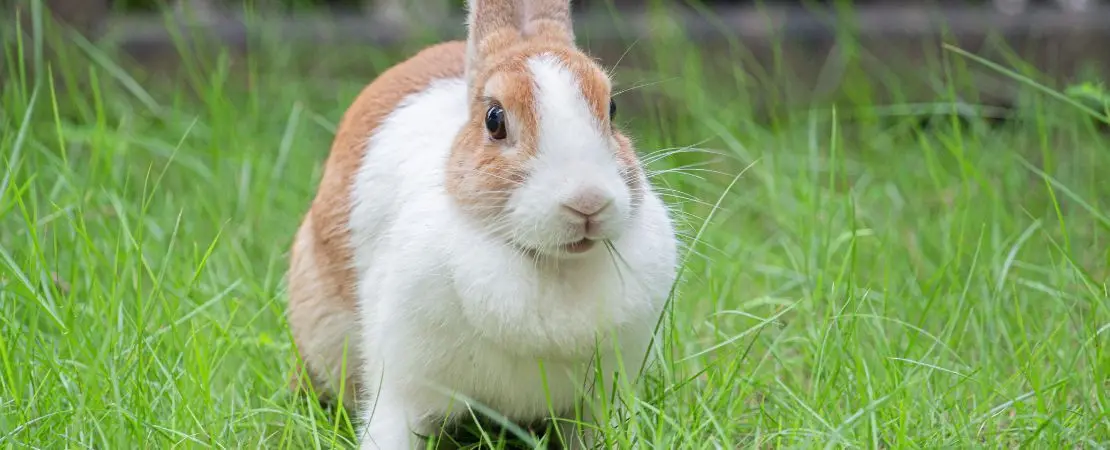
Rabbits love to munch on plants and herbs, but not all greenery is safe for these furry friends. Knowing which rabbit-friendly plants can help you create a safe and enjoyable environment for your pet bunny. From sunflowers to rosemary, there are many options to choose from. These plants can add variety to your rabbit’s diet and keep them healthy.
Adding herbs to your rabbit’s meals can do more than just make their food tastier. Some herbs have health benefits, too. For example, lavender can help reduce cholesterol levels in rabbits and even has some immune-boosting effects. By including a mix of safe plants and herbs in your rabbit’s diet, you’re not just feeding them but supporting their overall health and happiness.
Key Takeaways
- Including a variety of rabbit-friendly plants and herbs in your rabbit’s diet can enhance their overall well-being, offering both nutritional benefits and enrichment.
- Incorporate safe, nutritious greens like dandelion leaves, kale, and parsley, as well as herbs like basil, mint, and cilantro, to diversify your rabbit’s meals.
- Always introduce new plants and herbs gradually and in moderation to prevent digestive upset and ensure your rabbit’s system adapts well.
- Be aware of and avoid toxic plants such as lilies, onions, and nightshades to ensure a safe environment for your rabbit.
- Designing a garden with a mix of rabbit-safe plants, herbs, and seasonal greens can provide a delightful and healthy environment for your furry friends to explore and enjoy.
Understanding Rabbit Diets
Rabbits need a varied diet to stay healthy, and incorporating rabbit-friendly plants and herbs can make a significant difference. Wild rabbits mainly eat leaves, grass, fruits, and vegetables they find in nature, and pet rabbits need similar foods. The main part of a rabbit’s diet should be hay, but supplementing with these safe greens ensures they get a well-rounded and nutritious diet.
It supports their digestion and promotes dental health. Give your bunny unlimited hay every day. Fresh veggies are also important. Offer your rabbit a mix of leafy greens and other vegetables. Some good choices are:

- Romaine lettuce
- Carrot tops
- Bell peppers
- Cucumber
Fruits are treats for rabbits. Give them in small amounts. Good fruit options include apple slices and berries. Herbs can be a tasty addition to your rabbit’s meals. They offer health benefits, too. Safe herbs for rabbits are:
- Basil
- Mint
- Cilantro
- Parsley
Always introduce new foods slowly. Watch for any bad reactions. If you need more clarification on a food, ask your vet. Remember to give your rabbit fresh water every day. Change it often to keep it clean.
Best Plants for Rabbit Consumption
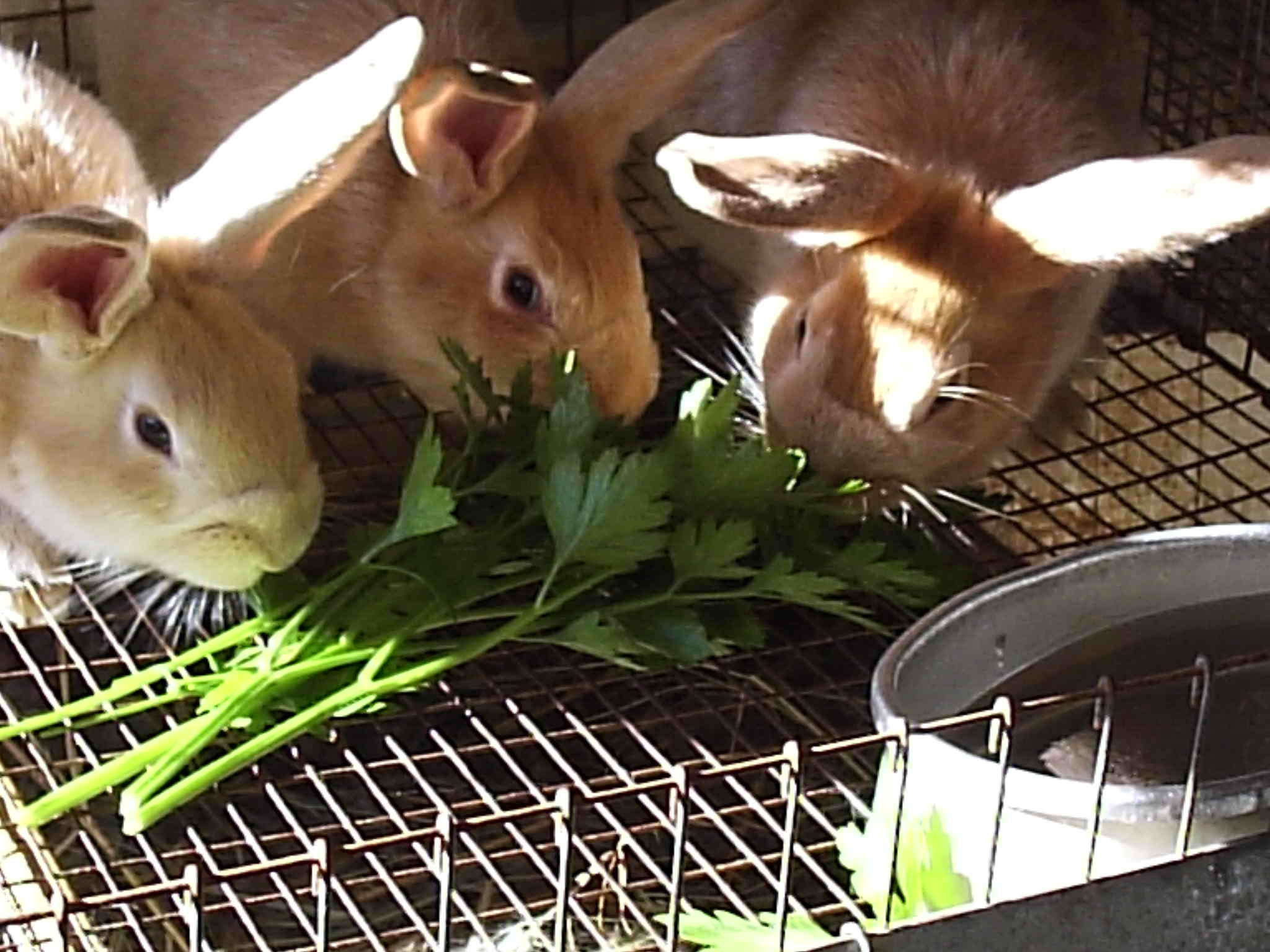
Rabbits love to munch on a variety of rabbit-friendly plants and herbs. Some are great for everyday eating, while others make special treats. Offering a mix of these safe greens keeps your bunny happy and healthy.
Leafy Greens
Dandelion greens are a top choice for rabbits. You can pick these from your yard if it’s free of chemicals. Kale is another nutritious option. It’s packed with vitamins and minerals. Romaine lettuce is a safe, low-calorie food for daily feeding. Avoid iceberg lettuce, as it has little nutritional value.
Spinach is okay in small amounts, but don’t give it too often due to its high oxalic acid content. Carrot tops are a rabbit favorite. They’re more nutritious than the carrot itself. Parsley is another great green. It’s rich in vitamin C and can help freshen your bunny’s breath.
Herbal Treats
Mint is a tasty herb that rabbits enjoy. It can help soothe tummy troubles. Basil is another safe option. It adds variety to your rabbit’s diet. Cilantro is packed with vitamins and has a unique flavor rabbits love.
Dill is not only safe but can help with digestion. Offer it in small amounts as a treat. Oregano is fine for rabbits in moderation. It has antibacterial properties. Thyme is another herb you can give occasionally. It’s known for its antioxidant benefits.
Edible Flowers
Marigolds are safe and fun for rabbits to eat. They add a pop of color to your bunny’s meal. Pansies are another edible flower option. They’re pretty and tasty. Sunflowers are a hit with many rabbits. You can offer the petals, leaves, and even seeds as treats.
Nasturtiums are both safe and nutritious. Their peppery taste adds interest to your rabbit’s diet. Calendula, also known as pot marigold, is great for rabbits. It has health benefits and a mild flavor. Chamomile flowers are safe in small amounts. They can have a calming effect on your bunny.

Did You Know?
It is important to be aware of toxic herbs and plants that should be avoided in a rabbit’s habitat. Some common plants that can be harmful to rabbits include azaleas, daffodils, and tulips. Rhubarb leaves and potato plants are also toxic. Additionally, carrot tops, beans, and peas can cause gas and bloating in rabbits. It is essential always to check if a plant is safe before allowing a rabbit to be near it.
Safe Woody Plants and Twigs
Rabbits love to chew, and incorporating rabbit-friendly plants and herbs can be great for their dental health. You can offer your furry friend some safe options to gnaw on. Apple tree branches, which are among rabbit-friendly plants and herbs, are a popular choice. Please make sure they’re pesticide-free before giving them to your rabbit. Pear and cherry tree twigs are also good options.

Willow twigs are another rabbit favorite. They’re safe and can help with pain relief. Maple and poplar branches are fine, too. Safe woods for rabbits include hazel, birch, and pine. Just be sure they haven’t been treated with chemicals. Avoid giving your bunny oak, cedar, or walnut wood. These can be harmful.
Remember to wash any twigs or branches before offering them to your rabbit. This helps remove dirt and bugs. You can place woody items in your rabbit’s enclosure or play area. They’ll enjoy the natural chewing material. Rotating different types of safe woods keeps things interesting for your bunny. It’s a simple way to enrich their environment.
Organic Gardening for Rabbits
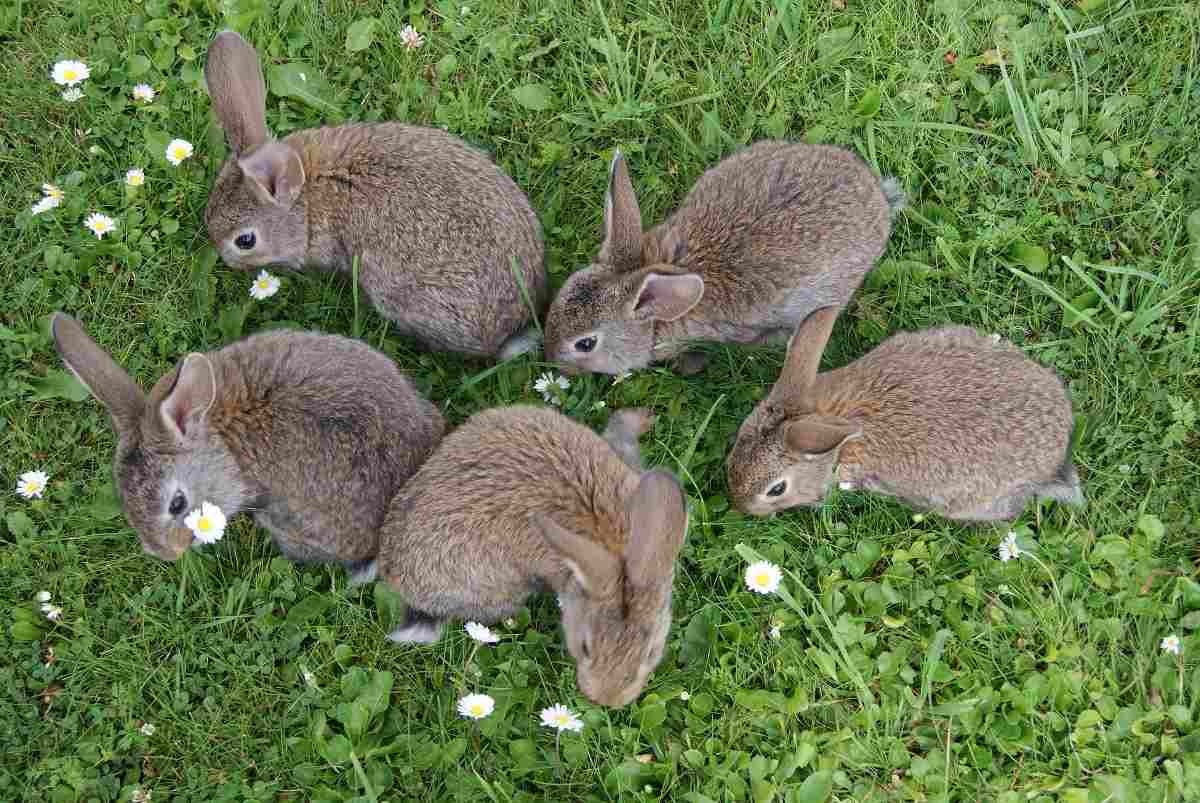
Organic gardening creates a safe, healthy environment for rabbits to enjoy with rabbit-friendly plants and herbs. You can grow nutritious plants without harmful chemicals while using natural methods to protect your garden.
Pesticide-Free Practices
You can keep pests away without chemicals. Try companion planting with strong-smelling herbs like lavender and rosemary near your rabbit’s favorite veggies. These herbs naturally deter many insects. Handpick larger pests like caterpillars. Spray plants with a mix of water and mild soap to remove aphids.
Attract helpful insects by planting flowers like marigolds. These insects eat pests that could harm your rabbit-friendly plants. Use physical barriers like row covers to protect young plants. Mulch with straw or wood chips to prevent weeds naturally.
Companion Planting Strategies
Plant veggies and herbs together to help each other grow. Carrots love tomatoes nearby – the tomatoes provide shade and improve soil. Marigolds make great companions for many rabbit-safe plants. They repel pests and attract pollinators. Try these pairings:
- Lettuce + chives (chives deter aphids)
- Strawberries + borage (borage improves flavor)
- Kale + nasturtiums (nasturtiums trap pests)
Plant strong-smelling herbs around the garden’s edge. This creates a natural barrier against pests and rabbits from outside. Remember to rotate plant families each year. This prevents soil depletion and disrupts pest cycles.
Identifying Toxic Plants
Keeping your rabbit safe means knowing which rabbit-friendly plants and herbs to include and which plants are dangerous. Many common plants can harm your furry friend if eaten. Learning to spot these plants is key.
Look out for lilies, onions, and garlic. These are very toxic to rabbits. Even small amounts can make your bunny sick. Be careful with nightshade plants, too. This group includes:
- Potato leaves and stems
- Tomato plants (except ripe fruit)
- Eggplant
- Bell pepper leaves
Avoid letting your rabbit near these plants. They can cause serious health issues. It’s best to keep new plants away from your rabbit when in doubt. You can always ask a vet if a plant is safe before letting your bunny near it. Rabbits are curious and love to nibble.
Keep an eye on them when they’re outside. Ensure they can’t reach any toxic plants in your yard or garden. If you think your rabbit ate something wrong, call your vet right away. Quick action can help prevent serious problems.
Here’s an additional video about the plants that rabbits can eat.
By: AnimalWised
Creating a Rabbit-Friendly Garden Space
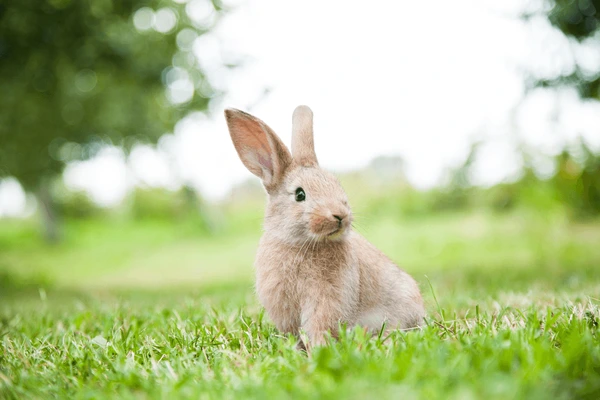
A garden filled with rabbit-friendly plants and herbs offers both enjoyment and safety for your furry friends. By carefully planning the layout and choosing suitable materials, you can create a space that rabbits will love to explore.
Garden Design Tips
Start by providing food, water, and shelter for your rabbits. Include a variety of rabbit-friendly plants like grass, dandelions, and clover. These plants offer both food and hiding spots. Create pathways through your garden for rabbits to explore. Use mulch or flat stones to make comfortable paths. Add some logs or branches for climbing and chewing.
Place water sources at ground level for easy access. Shallow dishes or bird baths work well. Make sure to change the water daily. Add rabbit-safe herbs to your garden for extra treats. Basil, parsley, and cilantro are tasty options. Grow these in raised beds or pots to control access.
Rabbit Safe Fencing Options
Choose fencing that keeps rabbits in and predators out. A height of at least 4 feet is ideal. Bury the fence 6-12 inches deep to prevent digging. Wire mesh fencing with small openings works well. Look for 1-inch or smaller gaps to keep young rabbits from squeezing through. Avoid chicken wire, as it can harm rabbits’ feet.
Consider adding a top to your fence for extra protection. This can be mesh or solid material. It prevents climbing predators and offers shade. For a more natural look, try living fences. Dense shrubs or hedges can create barriers. Choose rabbit-safe plants like boxwood or barberry.
Seasonal Rabbit-Friendly Plants
Rabbits enjoy different plants throughout the year. Your furry friend can munch on safe, tasty options, including rabbit-friendly plants and herbs, no matter the season.

Spring Favorites
Spring brings a bounty of fresh greens for your rabbit. Dandelions are a springtime treat that bunnies love. The entire plant is safe – flowers, leaves, and stems. Clover is another spring favorite. It’s rich in nutrients and grows in many yards. Just make sure it hasn’t been treated with chemicals.
Pansies add a pop of color to your garden and are safe for rabbit snacking. These pretty flowers come in many shades and are a fun spring treat. Remember to introduce new plants slowly. This helps prevent tummy troubles for your bunny.
Summer Selections
Summer offers many tasty options for your rabbit. Sunflowers are a great choice. Your bunny can eat the whole plant – flowers, leaves, stems, and even seeds. Basil is a fragrant herb that’s safe for rabbits. It’s easy to grow in pots or gardens. Your bunny might enjoy nibbling its leaves on hot days.
Lavender is another summer plant rabbits can eat. Its purple flowers are pretty and smell nice. Plus, it’s safe for your furry friend to munch on. Always check that plants are pesticide-free before feeding them to your rabbit.
Autumn Choices
Fall brings new flavors for your rabbit to try. Pumpkin leaves are a seasonal treat many bunnies enjoy. Just be sure to offer them in small amounts. Carrot tops are another autumn favorite. They’re actually healthier for rabbits than the carrots themselves. Your bunny will love their fresh, green taste.
Marigolds are colorful flowers that bloom into fall. They’re safe for rabbits, so add a pop of orange to your garden. Remember to wash all plants before giving them to your rabbit. This removes any dirt or bugs that might be on them.
Winter Considerations
Even in winter, you can provide fresh plants for your rabbit. Wheatgrass is easy to grow indoors. It’s packed with nutrients, and rabbits love its sweet taste. Parsley is another herb you can grow inside during cold months. It’s safe for bunnies and adds flavor to their diet.
For a winter treat, try giving your rabbit small amounts of pine branches. Please make sure they’re from safe pine varieties and haven’t been treated with chemicals. Always research new plants before feeding them to your rabbit. Some common winter plants, like poinsettias, can be harmful.
Supplementing With Store-Bought Greens
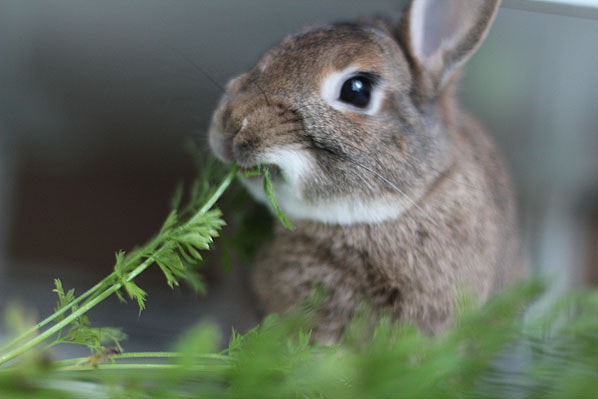
While growing your own rabbit-friendly plants and herbs is great, you can also supplement your bunny’s diet with store-bought greens. This is a convenient way to ensure your furry friend gets a variety of nutrients. Some safe and nutritious options include:
- Romaine lettuce
- Kale
- Spinach (in moderation)
- Cilantro
- Parsley
When buying greens for your rabbit, always choose organic when possible. This helps avoid harmful pesticides that could upset your bunny’s tummy. Remember to introduce new greens slowly. Start with small amounts and watch for any signs of digestive upset. If your rabbit tolerates the new food well, you can gradually increase the portion size. It’s important to rinse all store-bought greens thoroughly before feeding them to your rabbit.
This removes any dirt or residue that might be present. Mix up the types of greens you offer to keep your rabbit’s meals exciting and nutritionally balanced. You can create a tasty salad by combining different leafy greens with a sprinkle of safe herbs. Always remove any uneaten greens from your rabbit’s enclosure after a few hours to prevent spoilage. Fresh is best when it comes to your bunny’s diet.
Monitoring Your Rabbit’s Health
Keeping an eye on your rabbit’s health is crucial. Watch for these key signs:
- Eating habits: Your bunny should eat regularly. If they stop eating or drinking, it’s time to call the vet.
- Droppings: Check your rabbit’s poop daily. It should be round and firm. Soft or stringy droppings can mean trouble.
- Energy levels: A happy rabbit is active and curious. If your bunny seems sluggish, it might be sick.
Look out for these warning signs:
- Runny nose or eyes
- Tilted head
- Sudden weight loss
- Fur loss
- Loud teeth grinding
Offer your rabbit safe rabbit-friendly plants and herbs like basil in small amounts. This can boost their health and make mealtime fun. Regular vet check-ups are a must. Your vet can spot issues you might miss. They’ll also keep your rabbit up-to-date on shots. Remember, rabbits hide illness well. Trust your gut if something seems off. Quick action can save your bunny’s life.
Sourcing and Growing Your Own Herbs and Plants
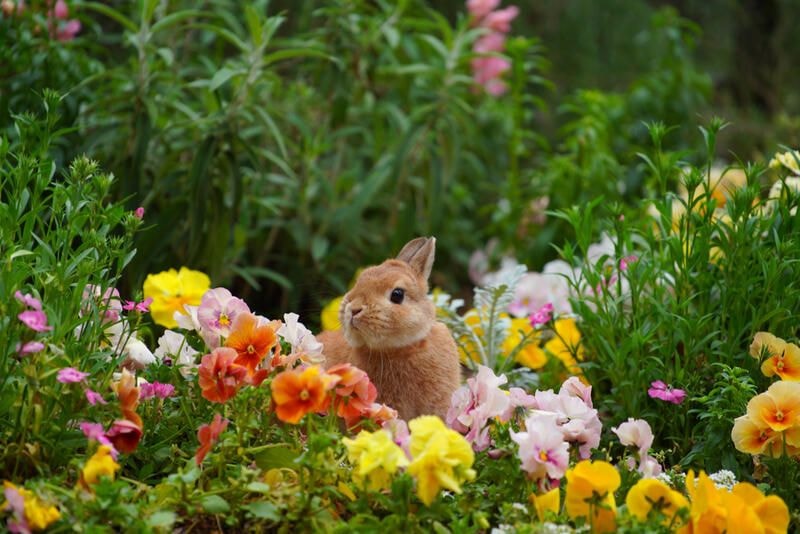
Starting a rabbit-friendly garden is fun and rewarding. You can grow tasty treats for your bunny while enjoying fresh herbs yourself. To begin, pick a sunny spot in your yard or on a balcony. Make sure it’s safe from pesticides and other chemicals.
You can grow herbs in raised beds or containers. Raised beds are great for vegetables, while pots work well for herbs. Here are some easy-to-grow plants for your rabbit garden:
- Parsley
- Mint
- Basil
- Cilantro
- Bok choy
- Romaine lettuce
When planting, use organic soil and compost. Avoid chemical fertilizers that could harm your bunny. Water your plants regularly, but do just what is necessary. Most herbs prefer well-drained soil.
Harvest herbs often to encourage new growth. Your rabbit will love the fresh treats! Remember to introduce new foods slowly. Even safe plants can upset your bunny’s tummy if given too much at once.
Incorporating Variety in Rabbit Meals
Adding different rabbit-friendly plants and herbs to your rabbit’s diet can make mealtimes more exciting. You can mix things up by offering a range of safe rabbit-friendly plants and herbs alongside their regular hay and pellets.
Try rotating through various leafy greens each week. This keeps meals interesting and provides a mix of nutrients. Some options include:
- Romaine lettuce
- Cilantro
- Parsley
- Carrot tops
- Bok choy
Mint varieties like spearmint or peppermint make tasty treats. Just remember to introduce new foods slowly to avoid upsetting your bunny’s tummy. You can even grow a small herb garden for your rabbit. Plant some basil, oregano, or rosemary in pots. This gives you a fresh supply of bunny-safe herbs right at home.
Don’t forget about flowers! Many rabbits enjoy nibbling on safe wildflowers like daisies or dandelions. These can add color and flavor to your pet’s meals. Remember to always wash plants thoroughly before feeding. This removes any dirt or potential pesticides. With a little creativity, you can give your rabbit a varied and enjoyable diet!
Here’s an additional video about herbs for rabbit health.
By: The Bunny Lady
Nurturing Your Rabbit’s Health: The Benefits of Rabbit-Friendly Plants and Herbs
Incorporating rabbit-friendly plants and herbs into your pet’s diet not only provides them with delightful and nutritious treats but also enhances their overall well-being. By choosing safe and beneficial greens, from leafy options like dandelion greens and kale to aromatic herbs such as basil and mint, you’re creating a varied and enriching diet for your furry friend. Remember to introduce new plants gradually and monitor your rabbit’s health to ensure they thrive on their new diet.

With careful planning and a bit of creativity, you can transform your garden into a paradise where your rabbit can explore, graze, and enjoy a diverse array of safe greens. Whether through growing your own herbs or selecting fresh store-bought options, each addition supports their health and happiness. By staying informed about which plants to avoid and how to introduce new foods, you can provide a vibrant, secure environment that keeps your rabbit’s diet both enjoyable and nutritious. Your dedication to their well-being will ensure that they continue to frolic happily and healthily, making every meal a celebration of nature’s finest offerings.
Frequently Asked Questions
What Plants Can I Safely Include in My Rabbit's Diet?
You can give your rabbit many safe and healthy plants. Leafy greens like Swiss chard and lettuce are great choices. Herbs such as parsley, mint, and oregano are also good options. Some flowers are fine for rabbits, too. Marigolds, salvias, and calendulas can add color to your rabbit’s diet. Always introduce new foods slowly to avoid tummy troubles.
Which Dried Herbs Are Suitable for Rabbits to Consume?
Dried herbs can be a tasty treat for your rabbit. Good choices include rosemary, thyme, and basil. These herbs can add flavor and variety to your rabbit’s meals. Rosemary can help calm nervous bunnies. It may also help with digestion. Remember to offer dried herbs in small amounts as part of a balanced diet.
How Often Can Rabbits Have Fresh Herbs in Their Diet?
You can give your rabbit fresh herbs a few times a week. A small handful is plenty. Mix different types for variety. Fresh herbs are packed with nutrients and flavor. Please don’t overdo it, though. Too many herbs can upset your rabbit’s stomach. Always wash fresh herbs well before feeding them to your bunny.
Come Hop with Us on Social Media!
Do you adore your bunny? So do we at The Rabbit Hop!
Find us online for:
- Bunny Fun: Cute videos, interesting facts, and tips for keeping your bunny happy!
- Top Product Reviews: Find out what’s best for your fluffy friend.
- Bunny Community: Meet and connect with other bunny lovers just like you
Follow us on:
Let’s make your bunny the happiest hopper on the block!



